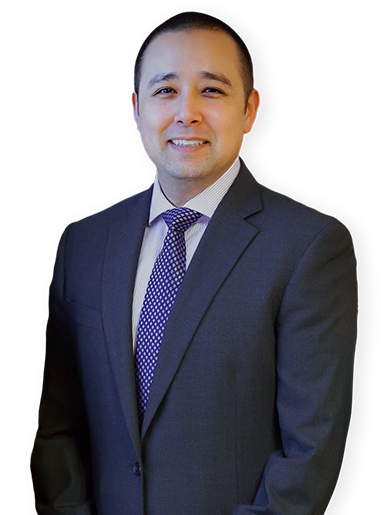|
|
Last
Modified on
Dec 10, 2025
Charlotte, North Carolina, is a beautiful city to live in, work in, and visit. However, this city is unfortunately associated with the most deadly crashes in the state of North Carolina. If you have been a victim of an NC car accident and sustained even minor injuries, then it is advised to work closely with a North Carolina car accident attorney so that you can work toward getting compensation for the subsequent damages.
Whether drivers are simply passing through Charlotte or driving around the city every day to commute to and from work, it’s important for them to be aware of which parts of the city are prone to accidents so that they can exercise extreme caution in these places or avoid these areas altogether. For this reason, it is important to determine which are the most dangerous roads and intersections in the city of Charlotte.
Navigating Charlotte, NC: Exploring the City’s Most Dangerous Intersections and Roads
As a general rule, the most dangerous roads and intersections in Charlotte, frequented by auto vehicles, motorcycles, and bicyclists, are typically found where numerous roads and highways intersect amid heavy traffic. Areas that are more densely populated and have poorly planned road infrastructure are more likely to see crashes in the city. However, more specifically, the most dangerous roads and intersections tend to be the following:
- North Tryon St. and University Pointe Blvd.: This intersection is situated near UNC Charlotte and a popular shopping area, and it is also located near an exit just off Interstate 85. Due to the large amounts of traffic, this intersection can be infamous for accidents.
- S. Church St. and West Hill: Because of this intersection’s location near I-277, it tends to see high rates of accidents due to drivers getting on and off the highway at high speeds. As a result, all kinds of accidents, ranging from major accidents to minor rear-end crashes, are seen as a result of the intense activity at this intersection.
- N. Tryon St. and W. Trade St.: This intersection tends to be generally busy, especially during weekends and holidays, due to the high numbers of tourists who come through here. Spectrum Center, Bank of America Stadium, and Charlotte Convention Center are located near the intersection, making it a location with heavy distractions, which can lead to accidents.
- Independence Blvd. and Albemarle Rd.: Independence Boulevard is one of the busier roads in the city, which tends to be packed with commuters making their way to and from work. This intersection, in particular, is notorious for being congested with traffic. This level of heavy traffic either increases the risk of an accident or is caused by an accident.
Although the four intersections mentioned above have been identified as some of the most dangerous in Charlotte, this is not an exhaustive list. Caution should be exercised on all major roads and interstates, especially during peak hours, to decrease your chances of getting involved in a car accident in the city.
FAQs
What Is the Most Dangerous Part of a Highway in North Carolina?
In North Carolina and the United States, most accidents that occur on three-lane highways happen in the rightmost lane. This is due to the large changes in traffic in this area of the highway, mixed with frequent slowing down, speeding up, and merging. The risk of crashing can increase when drivers are distracted or forget to look where their blind spots are. If you have been the victim of an NC highway crash, it is advisable to get in touch with a Charlotte car accident lawyer who can represent you.
Is North Carolina a No-Fault State for Car Crashes?
The state of North Carolina is an at-fault state for car crashes. This means that individuals are only entitled to compensation for subsequent crash injuries or damages if they can prove that the other party or parties involved in the accident were completely responsible. Due to the strict liability laws in the state, if a party is found to be even one percent responsible for causing the crash, then they are not entitled to any compensation.
An experienced car crash lawyer can help you understand whether you may be entitled to seek compensation for damages.
Can You Sue a Person for a North Carolina Car Accident?
In North Carolina, it is possible to sue someone for a car accident if they are found to be completely at fault for the accident. While it is possible to settle outside of court through negotiations with the at-fault driver’s insurance company, the premiums from their plan might not be sufficient to cover their sustained injuries and damages. Therefore, it is possible, in some cases, to directly sue the at-fault driver for additional damages that were not covered.
Is It Safe to Drive in North Carolina?
North Carolina is considered to be a generally safe state to drive in, but this can depend on various factors, including the density of cars and people in the location where you are driving, the road conditions, and the time of the day. According to a report published in 2023 by a national transportation research nonprofit called TRIP, one-third of the major roads in the state are in mediocre or poor condition, while 44% of the roads are considered to be in good condition.
Start Working Toward Compensation Today by Hiring a North Carolina Car Accident Attorney
If you have been involved in a car accident in the Charlotte area or North Carolina in general, then you are likely feeling distressed and unsure about the next steps to take. If you sustained even minor injuries from the accident, it is important to contact a personal injury lawyer from Bridgman Gantt Law.
Our team can analyze all the details associated with your crash and help you file a claim in court. We take a client-first approach, ensuring that you are fully aware of all your options and updated on the evolving status of your case. Contact us today to get started working together.






